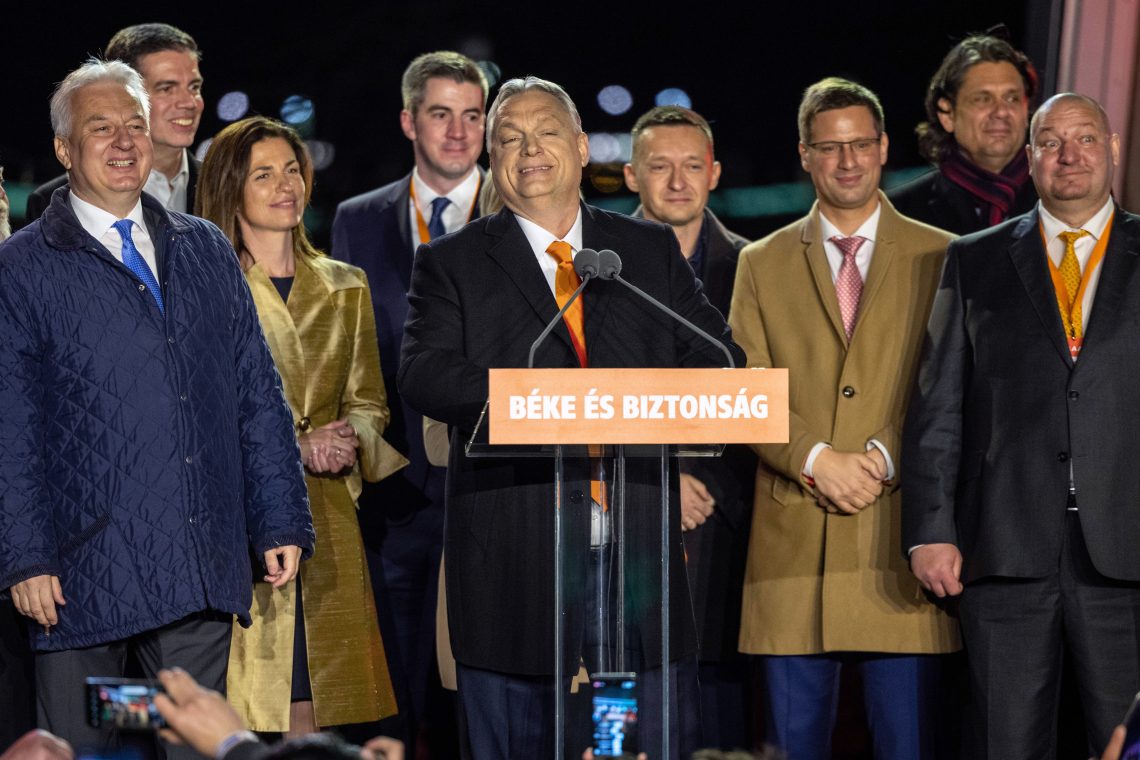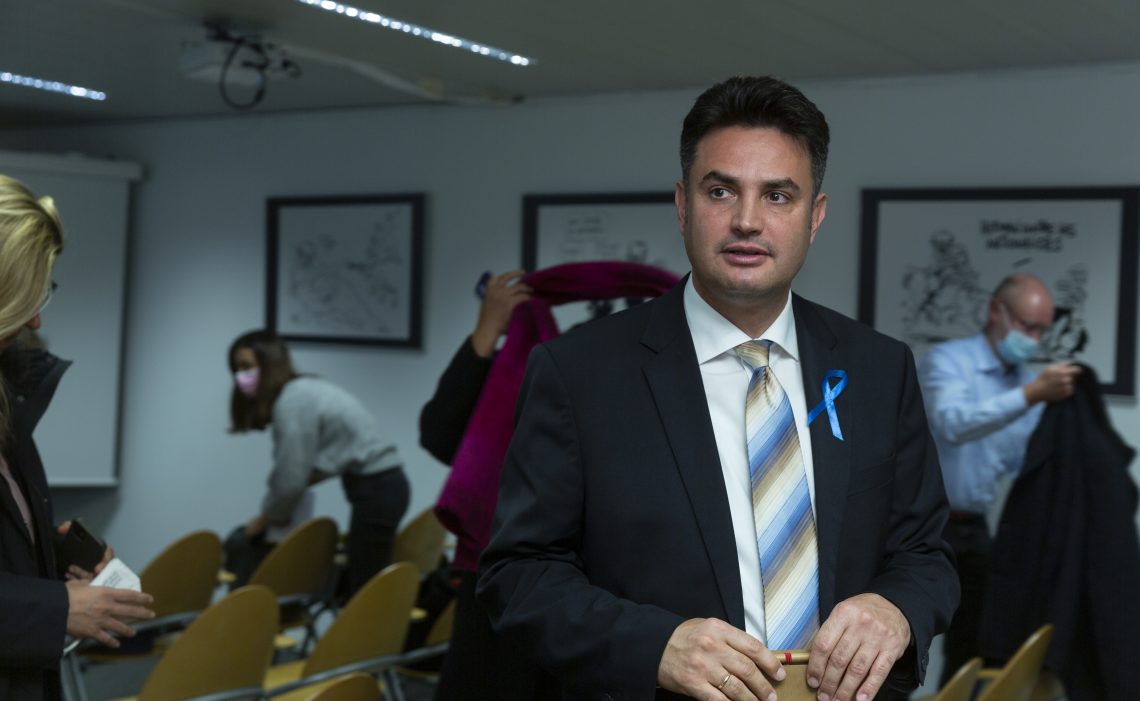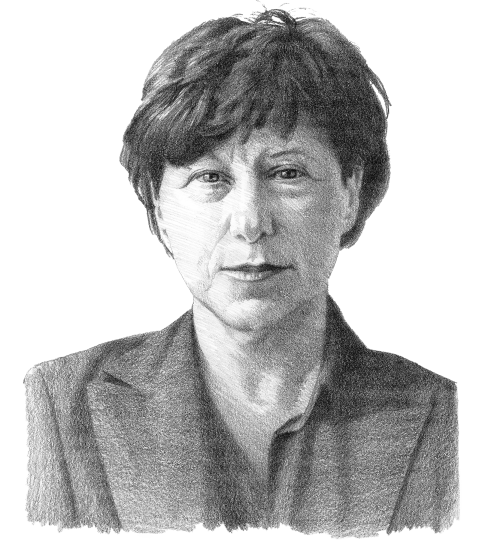Understanding Orban’s political hold on Hungary
Hungarian Prime Minister Viktor Orban continues to fend off domestic opposition thanks to a growing economy and his popular messages on migration and the war in Ukraine.

In a nutshell
- Orban’s Fidesz has pursued a labor-based economy
- The opposition has largely failed to establish a persuasive alternative
- Corruption remains a point of political contention
To understand Hungary’s domestic politics, one must go back to 2010. The ruling coalition of the conservative Fidesz party and the smaller Christian Democratic People’s Party (KDNP) won an election with a two-thirds majority for the first time. That was achieved in subsequent elections as well, and the coalition governs with this majority until today.
In 2010, this empowered Fidesz saw an opportunity to make several fundamental changes to the political, economic and social conditions that had existed in Hungary since 1989, as well as to reorganize the media landscape. Prime Minister Viktor Orban and his party believed that fundamental systemic transformation did not follow the end of communist rule, a failure of the 1989 negotiations. Although free elections and the privatization of state property were agreed upon, the communist Hungarian Socialist Workers’ Party – resurrected as the Hungarian Socialist Party – retained its party assets and positions of state and economic power, especially in the judiciary and the media.
In the view of many Hungarians, large segments of the opposition were not promoting a liberal order. The leading opposition party at the time, the Alliance of Free Democrats, had strong reservations about the market economy. Privatizing state property led to the emergence of an economic elite much like the old one: former state leaders, politicians, managers and the technical intelligentsia. Most of the state’s assets ended up with them; they became either direct owners or managers of the foreign companies that participated in privatization. The same applied to the newly privatized media.
As Mr. Orban saw it, a state apparatus dominated by ex-communists, media outlets loyal to them and a class of oligarchs made up a firm organizational and financial support base for the communist-left-liberal governments. That considerably limited the possibilities for political change.
System change
When Fidesz took office in 2010, Hungary was on the verge of bankruptcy after eight years of socialists in office. In this situation, the new Prime Minister Orban turned to the European Union to obtain relief. Many bureaucrats who had been ready to lend freely to the previous socialist governments rejected the conservative Mr. Orban. The debt crisis threatened to destroy the government.
As he has often done, Mr. Orban resorted to “unorthodox” measures. He broke off negotiations with the EU and the International Monetary Fund on debt restructuring and austerity measures. He refused to implement new austerity programs, as demanded by the IMF, arguing that they would have placed a heavy burden on an already impoverished population. The government took the money from where it was available: the predominantly foreign banks, insurance companies, utilities and service providers, most of whom had established substantial market shares in the country. The prime minister described this process as a “struggle for financial liberation” that reduced Hungary’s financial dependence on the EU and the IMF
Read more by Krisztina Koenen
Hungary on its own path
At the same time, the government declared the goal of a “labor-based” society – simultaneously reducing the rate of redistribution and initiating an interventionist economic and social policy. That principle still holds today. Industrial production was prioritized over service providers; foreign investors in industrial production were welcome, receiving state aid and tax rebates.
Corporate and income taxes have been radically reduced to create work incentives and curb undeclared work. A “community work” system was created, providing employment for the unemployed. At the same time, the duration and level of unemployment and social assistance have been reduced to prevent dependency. The result was a new high in employment, continuous economic growth, modest prosperity for all strata of society and the creation of large, privately-owned wealth.
To this day, a common feature of Fidesz’s policy is to demand contributions from big businesses in economic emergencies and to spare the working poor (they now make up about 12.2 percent of society). The prices of fuel, staple foods, electricity and gas have been capped to mitigate the impact of the present sanctions against Russia on that group. The measures have been financed by special taxes on large companies and by state debt, which is beginning to assume dangerous proportions.
Rule of law
The rule of law has governed Hungary for only 30 years, a system built without great democratic traditions on the ruins of a communist dictatorship. This helps explain its current problems and dangers, especially the penetration into the state by its governing parties. Until 2010, state institutions were dominated by partisans of the socialists, and this changed gradually after 2010 in favor of Fidesz supporters.
Hungarians enjoy free elections, alongside freedom of speech, assembly and organization. There is a functioning constitutional court, established by Laszlo Solyom (born 1942), the great jurist and later president. Political parties operate freely, ranging from the far left to green to right and nationalist.
There is little censorship, and extreme views can be expressed and printed. The current media landscape reflects a sharp confrontation between the conservative supporters of Mr. Orban and his left-wing, socialist and green opposition. Until 2010, the media was dominated by those in the socialist, left-green and pro-EU camps, with some outlets owned by Germans and Swiss. After 2010, Fidesz expanded its own conservative media, but today’s leading print media remain critical of the government. The government financially backs the conservative outlets, while the more government-skeptical, pro-EU media finds support in Europe and, especially, the United States.
This overall picture is not shared in some corners of the EU, and several charges have been brought against Hungary’s government before the European Court of Justice (ECJ) for noncompliance with the rule of law. The allegations concern freedom of the media, LGBT rights, corruption and, above all, the admission of migrants.
Hungary considers itself to be right on all these issues, arguing not only on the merits but also that the EU treaties do not cover the relevant matters. Budapest contends that the ECJ is pursuing novel lawmaking instead of following the prescribed legal process for amending the treaties.
Structural corruption
The ECJ is right about one thing: there is corruption in Hungary. Its prevalence is about the same as in most postcommunist countries and was also present under previous socialist governments. The attempt to “create” a market economy after the collapse of communism inevitably led to the amalgamation of state, politics and economy. At first, this favored the Socialists, and today it benefits those close to Fidesz. The government rewards its supporters with “winning” tenders and state contracts. Programs to build a strong national economic base and the state’s buyback of companies formerly privatized to foreigners also lead to structural corruption.

Some spectacularly successful businessmen around Mr. Orban and his family obviously owe their fortune to this proximity. They include Gyozo Orban, the prime minister’s father; Lorinc Meszaros, Hungary’s richest man and the former mayor of Felcsut, where the prime minister was born; and Istvan Tiborcz, Mr. Orban’s son-in-law, who has won a suspicious volume of tenders and built up an entire investment empire in a very short time. This wealth accumulation in the premier’s entourage leads to much resentment among the population, albeit which the opposition has generally failed to use to its advantage.
Credibility trap
The Hungarian opposition consists of several parties ranging from socialist and green to conservative nationalists and right-wing extremists. The strongest force in size is the Democratic Coalition (DK), a breakaway from the Socialists led by former communist youth official Ferenc Gyurcsany and his wife Klara Dobrev, among the country’s wealthiest politicians. Mr. Gyurcsany served as the Socialist prime minister from 2004 to 2009, a tenure marred by a leaked tape in which he admitted to lying to the public, sparking widespread protests that drew a brutal response from police.
In the last elections, in 2022, the left-green parties joined forces with the rightist Jobbik party, with the sole common goal of toppling Mr. Orban. That failed; the alliance lacked credibility both in terms of content and because of its leadership. At over two-thirds of parliamentary seats, Fidesz won a larger majority than ever before.
Except for Jobbik, the alliance represented positions that could not be easily swallowed by the generally conservative electorate, especially in rural areas. For many Hungarians, the opposition embraced radical European federalism, leftist views on gender and climate, excessive tolerance for migration and a pro-EU stance on each of its conflicts with Budapest.
Scenarios
Prime Minister Orban and Fidesz have persuasive domestic political arguments on their side. The country’s growing prosperity, which has benefited the broader society to varying degrees, sends a clear message. They are seen as staying out of the private lives of citizens and trying to ease hardships for families and people with low incomes. Mr. Orban’s stances on migration and the Ukraine war are popular even among many opponents. He is a charismatic leader, and the opposition lacks a comparable personality.
Its failure in the last election and Mr. Orban’s continued popularity have led to a radicalization of the left-green opposition. Its leading politicians and intellectuals publicly scorned Fidesz voters. The DK leader Gyurcsany declared that Fidesz was the enemy, not merely an opponent, and that to support it was a disgrace. Members of the opposition strive to exacerbate minor conflicts that might be resolved through compromise, attempting to cast them as systemic issues and thus raise the stakes. For some, the hope is to heighten the partisan divide and even dismantle the current regime.
Through 13 years of the Fidesz-Orban government, corruption remains a sore point. But even if there is much grumbling among the public, the opposition does not seem able to capitalize on it; most people accept it along with the good. In addition, the opposition is seen as just as much a part of the system as Fidesz. Mr. Gyurcsany and Ms. Dobrev have themselves been accused of getting rich by dubious means, while Fidesz supporters have charged the leading candidate of the opposition alliance, Peter Marki-Zay, with receiving election funds from abroad.
For the moment, the Fidesz government is only likely to be defeated if the opposition receives help from the outside. There are certainly those eager to do so, especially in the U.S. and the EU. The longer the war in Ukraine continues and the more difficult the situation for Hungary's middle class and poor, the better their chances.









